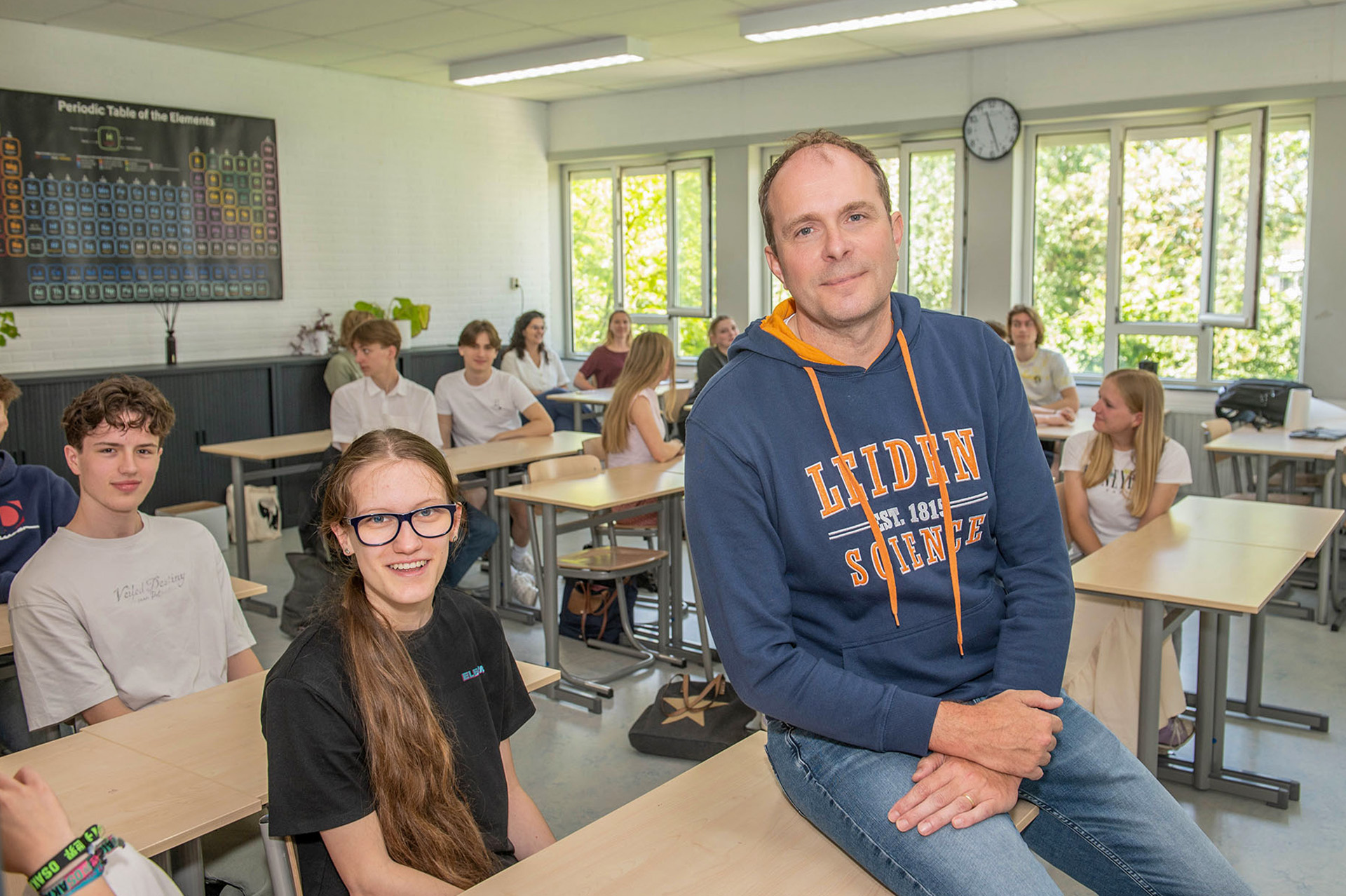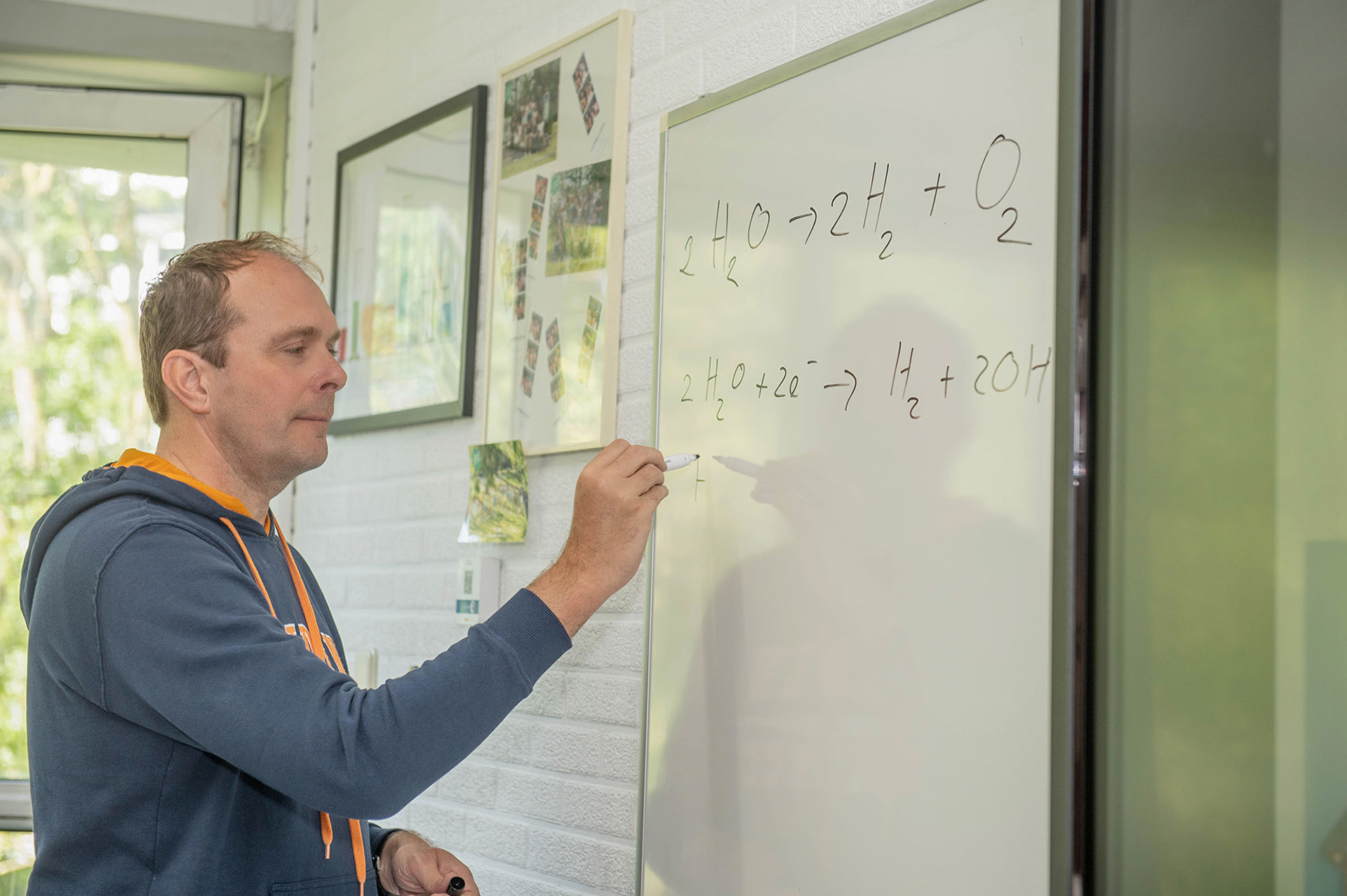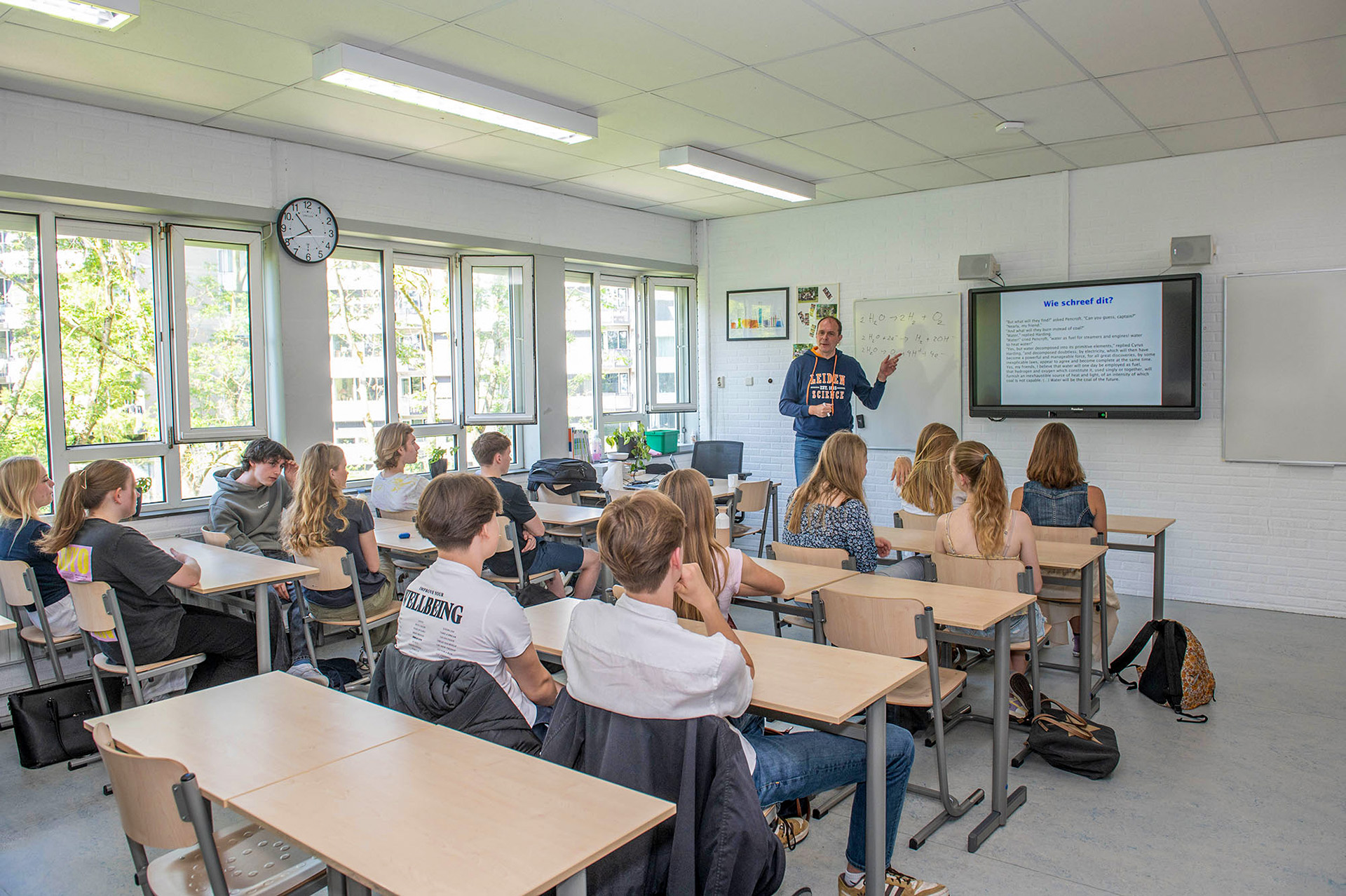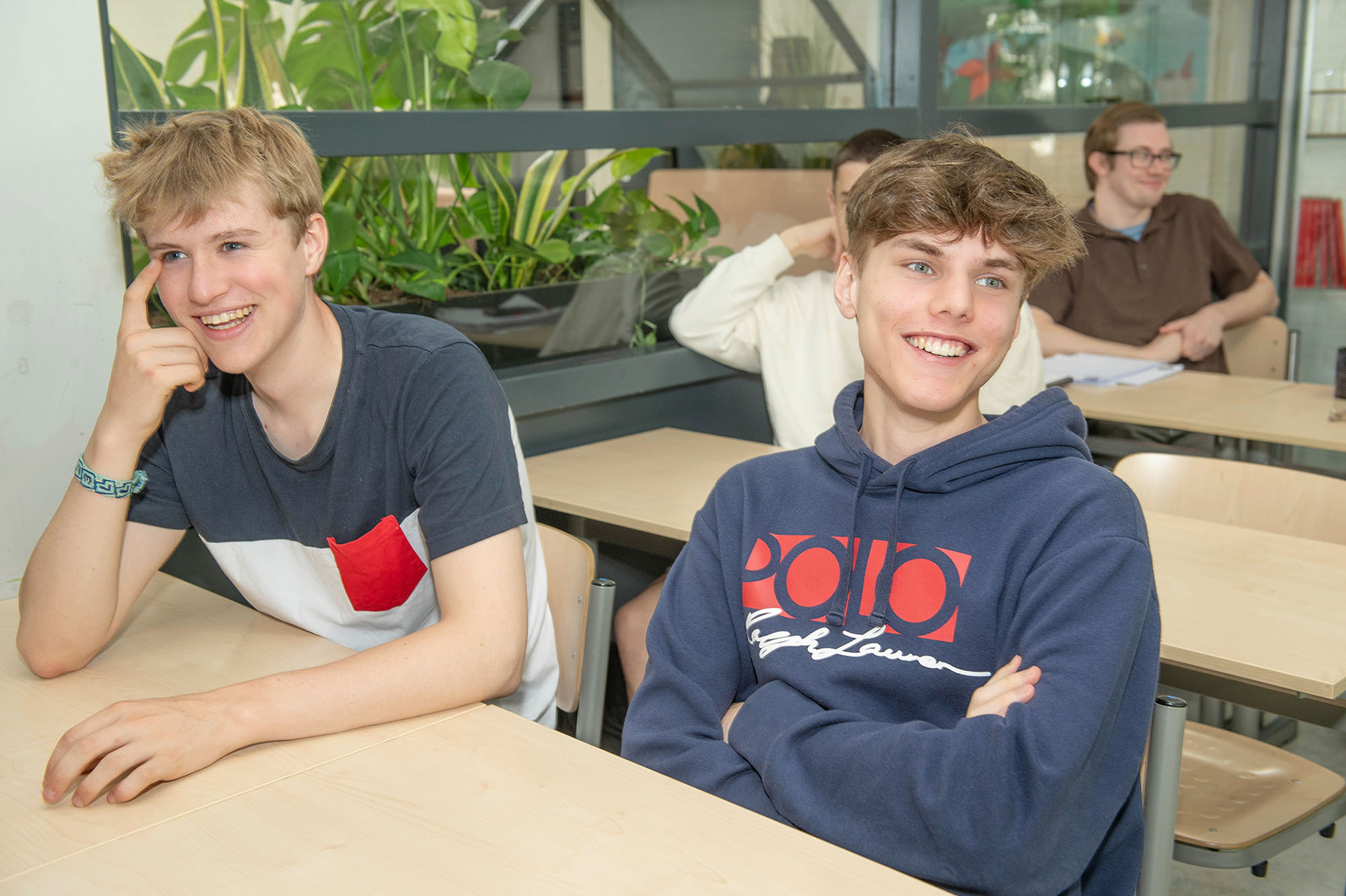
Researcher teaching in the classroom: ‘We need to imitate nature more closely’
How can we supply the growing world population with sustainable energy? At Laurens Lyceum in Rotterdam, Prof. Marc Koper speaks with the students about the crucial role of chemistry in the energy transition. Guest classes like this are a good way for school students to learn about the academic world, while researchers also hear about the questions that are important to young people.
It’s an unusual start to the school day at Laurens Lyceum, where the students have just finished their exam week. For a change, the regular chemistry teacher of the Year 5 VWO class is sitting at the back, and the students are being taught by this Leiden University chemistry professor. And instead of his familiar lecture hall, Marc Koper is suddenly in a classroom full of lively Year 5 VWO students. Koper explains, when asked, that he deliberately left his gown at home. Wearing a blue ‘We are Science’ hoodie, he gives an inspiring lesson on chemistry and sustainable energy. ‘We only have one planet, and the big challenge for our times is to supply the growing world population with sustainable energy.’
Request a guest class for your own school
‘This guest lecture fits in perfectly with my classes on sustainability,’ says teacher Marion Lamkadmi of Laurens Lyceum. Through ICLON, the graduate school of teaching, Leiden University offers more than fifty guest classes, with researchers from all faculties participating in the programme. Celine Lichtveld of ICLON explains: ‘These classes introduce young people to the academic world and research, and some of the classes link up precisely with the topics covered in the regular lessons. Schools can request a guest class themselves, and choose from the wide selection.’ Guest classes - Leiden University
Cycle
Koper asks a variety of questions to find out what the young people already know: ‘What are the criteria that sustainable energy has to meet?’ For a few seconds, everyone in the classroom thinks very hard. ‘It needs to have a short cycle,’ suggests one boy. Koper replies: ‘Yes, truly sustainable energy is renewable energy, which has its own cycle, doesn’t burn any fossil fuels and doesn’t produce any waste. As well as that, sustainable energy also needs to be both practicable and affordable.’
Consequences of artificial fertilizer
Koper then briefly outlines some important inventions that were based on chemical formulas. The invention of artificial fertilizer in the 19th century made it possible to feed many more mouths around the world, but since then has also contributed massively to the CO2 emissions that are causing global warming, he says. ‘For the transition to clean energy, we need to learn from nature and imitate it more closely.’
‘Major accidents of that kind immediately stop the development of new technologies for some time.’
Hydrogen as an energy carrier
One of the students wants to know why solar panels aren’t enough. There is indeed an endless supply of wind and sun, agrees Koper. But the problem is that the sun doesn’t shine gloriously every day and we can’t make binding operating agreements with the wind either. The big challenge is how to effectively store the energy that’s been generated. He points out the role of hydrogen, where the energy is released again during combustion. As early as 1789, Dutch pioneers were able to split water
electrochemically into hydrogen and oxygen, using their ‘electrolysis machine’ and Leyden jar. But for a long time the development of hydrogen as an energy carrier was a low priority, because fossil fuels were relatively easily available. Koper also refers to the German zeppelin, which exploded in 1937 due to a leaking hydrogen bag. ‘Major accidents of that kind immediately stop the development of new technologies for some time.’
A first in Botlek
In 2024 engineers and researchers in fields such as chemistry are racking their brains about how we can develop a new infrastructure that’s able to safely transport industrial quantities of gaseous hydrogen. ‘Where is the largest renewable hydrogen plant in Europe currently being built?’ Koper asks the class. The answer turns out to be much closer to home than many of them think: at Botlek in Rotterdam, and therefore not very far from their own Laurens Lyceum.
Europe and US ‘dragging their feet’
There are various hopeful developments, but it will be many more decades before the world can actually transition to cleaner energy on a large scale, predicts Koper. ‘For this, we need complex technology and political leadership to implement changes. Europe and the United States are still ‘dragging their feet’ too much, but China is making some big steps forward. Koper closes his guest class with a message for everyone who wants to make the world greener: ‘Study chemistry, or go into politics!’
Text: Linda van Putten
Photos: Stefanie Uit den Boogaard




